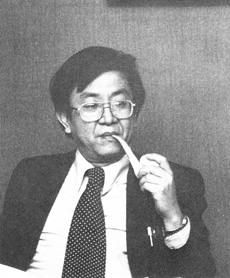In Memoriam Benjamin W. Lee

Dr. Benjamin W. Lee, Head of the Theoretical Physics Group at Fermilab, was killed in an automobile accident near Kewanee, Illinois, on June 16, 1977. He was driving with his family to the Fermilab Program Advisory Committee Meeting at Aspen, Colorado. Dr. Lee was heading west on I-80 when an eastbound semi-trailer crossed the highway divider into the westbound lane and struck his car on the left front side. Mrs. Lee and their two children, Geoffrey and Irene, sustained minor injuries.
Benjamin W. Lee, 42, was born in Seoul, Korea, and came to the United States in 1956 as a student. He studied at Miami University, the University of Pittsburgh and the University of Pennsylvania, where he received the Ph.D. in 1960. Lee became a United States citizen in 1968.
He held appointments at a number of institutions here and abroad, including the State University of New York at Stony Brook, the Institute for Advanced Studies, and the University of Paris. He was also a fellow of the Sloan Foundation, a Guggenheim fellow, and a fellow of the American Physical Society. He served on advisory committees for many other laboratories and universities. He joined the then National Accelerator Laboratory in 1971. He also held a joint appointment as professor of physics at the Enrico Fermi Institute of the University of Chicago.
Dr. Lee was the author of more than 100 research papers in the field of elementary particle physics. His work particularly emphasized the theory of weak interactions. He made significant contributions to the development of the gauge theories that are now believed to be of fundamental importance in unifying our views of the forces between the elementary particles of the atomic nucleus.
Robert R. Wilson, in a eulogy to Dr. Lee at the services held on Tuesday, June 21, said, "Ben Lee chose our Laboratory to be his home; it was an indescribable good fortune for us ... His key contribution is helping us to unite theories about electricity and radioactivity...It is a work of beauty and importance and loveliness...He set a tone, a standard of excellence, of mutual respect, an atmosphere of teaching and communication. That spirit will live on to his testimony."


